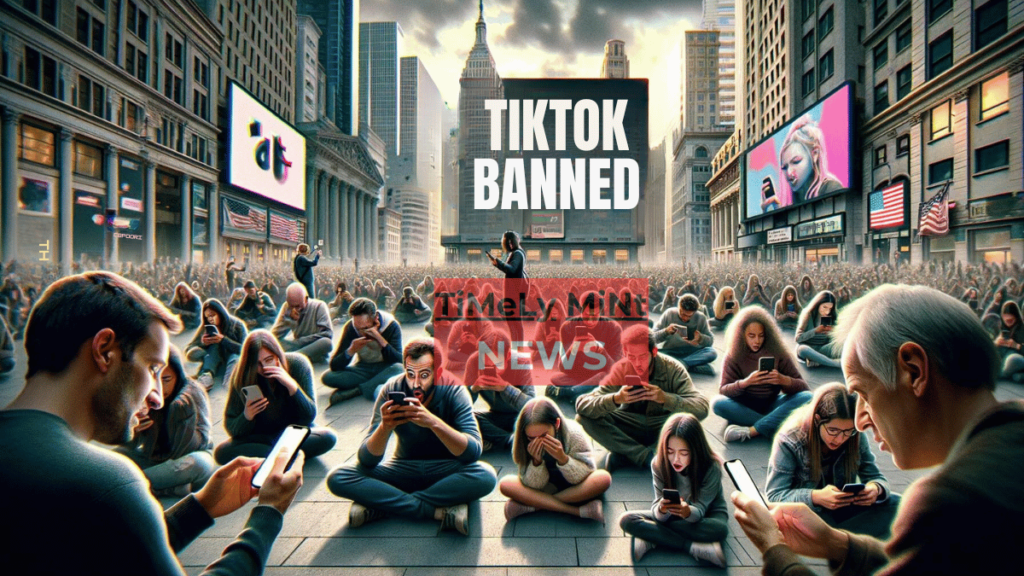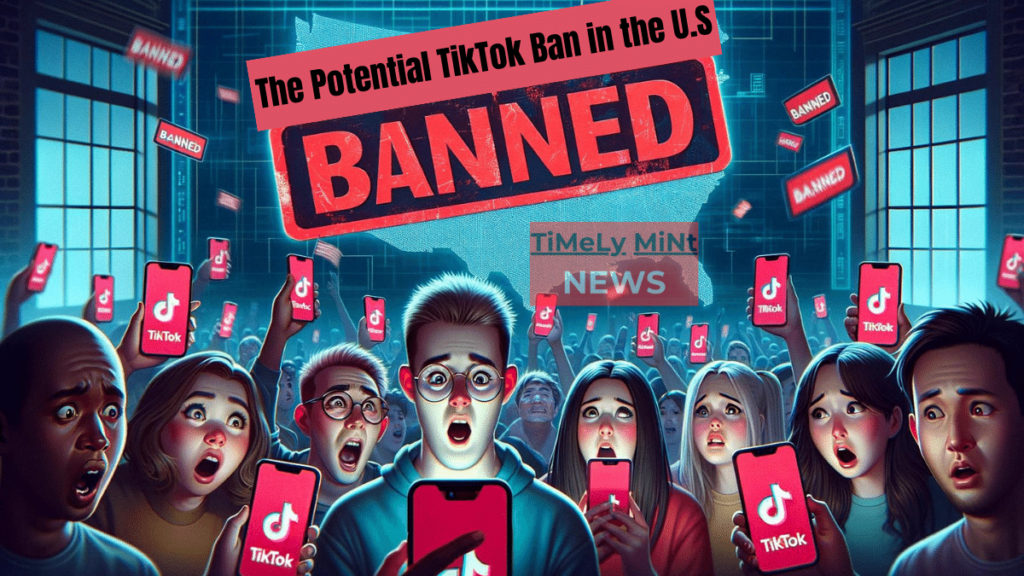Introduction
TikTok, the immensely popular video-sharing app, is facing an existential threat in the United States. Concerns over data privacy, national security risks, and the app’s ties to its Chinese parent company, ByteDance, have prompted lawmakers to take drastic measures. The U.S. House of Representatives recently passed a bill that could force TikTok to sever ties with ByteDance or face a nationwide ban.
The Reasons Behind the Proposed Ban
Data Privacy and National Security Risks
Lawmakers and regulators in the U.S. have expressed grave concerns that TikTok may be sharing sensitive user data, such as location information, with the Chinese government. These fears stem from Chinese laws that allow the government to demand data from companies for intelligence-gathering purposes.
According to cybersecurity experts, any company that collects vast amounts of personal information poses data privacy and security risks, regardless of its ownership. However, the potential for foreign government interference heightens these risks in TikTok’s case.
Misinformation and Content Manipulation
Another major concern is the potential for TikTok to be used as a platform for spreading misinformation and manipulating content recommendations. Critics argue that the app could be leveraged to promote pro-Chinese narratives or suppress certain viewpoints, posing a threat to free speech and democratic values.

The Current Status of the Legislation
The “Protecting Americans From Foreign Adversary Controlled Applications Act”
The House of Representatives overwhelmingly passed the “Protecting Americans From Foreign Adversary Controlled Applications Act” by a vote of 352-65, showcasing rare bipartisan unity on the issue. The bill requires ByteDance to divest from TikTok within 180 days or face a ban in the United States.
| Key Provisions | Details |
|---|---|
| Divestment Requirement | ByteDance must sell TikTok’s U.S. operations within 180 days |
| Consequences of Non-Compliance | TikTok will be barred from app stores and web hosting services in the U.S. |
| Presidential Authority | The President can designate other apps as national security threats |
The Uncertain Future in the Senate
While the House vote was a significant step, the bill’s fate in the Senate remains uncertain. Some key figures have expressed apprehension about taking such a drastic measure against an app with over 170 million U.S. users. President Biden has stated that he will sign the bill if it reaches his desk.
Potential Impact of the Ban
TikTok’s Response
TikTok has vehemently defended its data privacy practices and denied any ties to the Chinese government. The company has warned of the potential economic impact on U.S. jobs and businesses, as well as concerns over freedom of expression for its users.
Effect on TikTok Users
If TikTok is banned in the U.S., its over 100 million users would likely still be able to access the app through virtual private networks (VPNs) and other workarounds. However, its reach and growth potential would be significantly hampered.
TikTok’s Status in Other Countries
TikTok has already faced bans and restrictions in several countries, including India, where it lost one of its biggest markets in 2020. Other nations, such as the UK, Australia, and Canada, have banned the app from official devices.

Expert Opinions and Analysis
Cybersecurity Experts on Data Privacy Risks
While acknowledging the potential risks posed by TikTok, some cybersecurity experts argue that a sale of the app’s U.S. operations would not necessarily make personal information safer. They emphasize the need for robust data protection measures across all social media platforms, regardless of ownership.
Economists on the Potential Economic Impact
Economists have warned that a TikTok ban could have far-reaching economic consequences, affecting not only the app’s employees and creators but also businesses that rely on the platform for marketing and advertising.
Social Media Analysts on Industry Implications
Social media analysts have highlighted the potential implications of a TikTok ban for the broader industry. They argue that such a move could set a precedent for increased government regulation and scrutiny of social media platforms, potentially stifling innovation and free speech.
Conclusion
The potential TikTok ban in the U.S. has sparked a heated debate over data privacy, national security, and the role of foreign-owned technology companies in the digital age. While the House has taken a decisive step, the ultimate fate of the app remains uncertain, with the Senate and potential legal challenges looming.
As the situation unfolds, it is crucial to strike a balance between addressing legitimate concerns and preserving the principles of free speech and innovation that have fueled the growth of the tech industry. The TikTok saga serves as a reminder of the complex challenges posed by the globalized nature of technology and the need for a nuanced, well-informed approach to addressing these issues.














